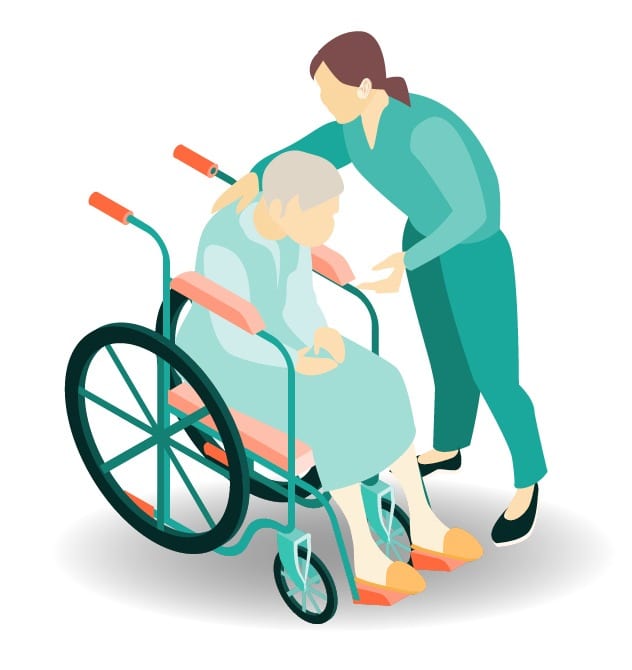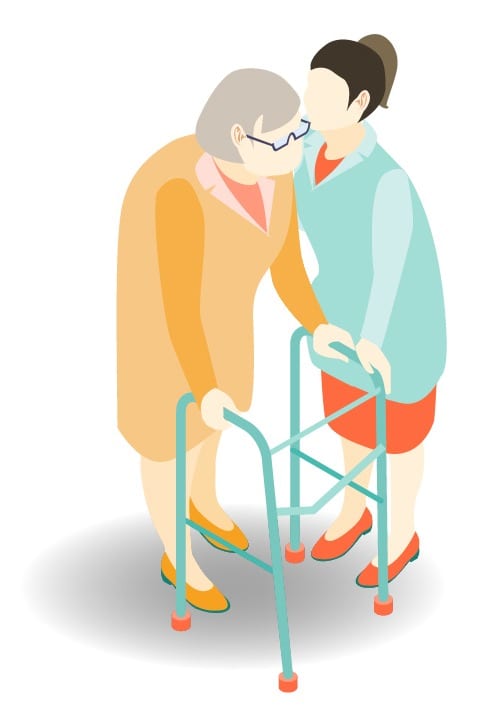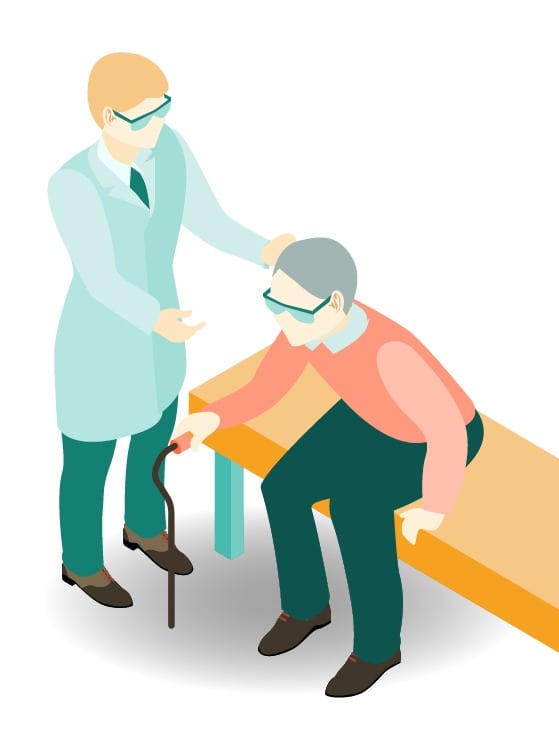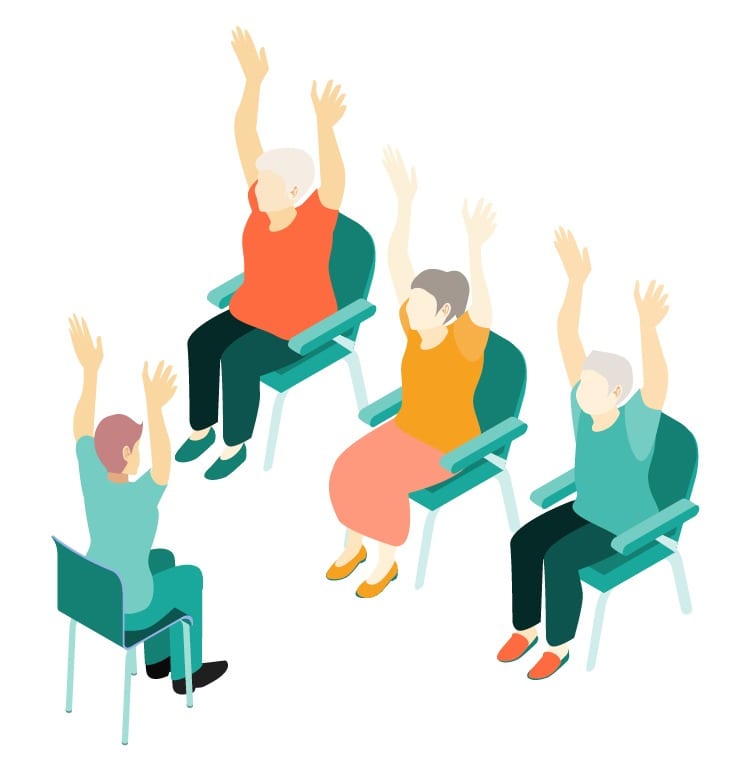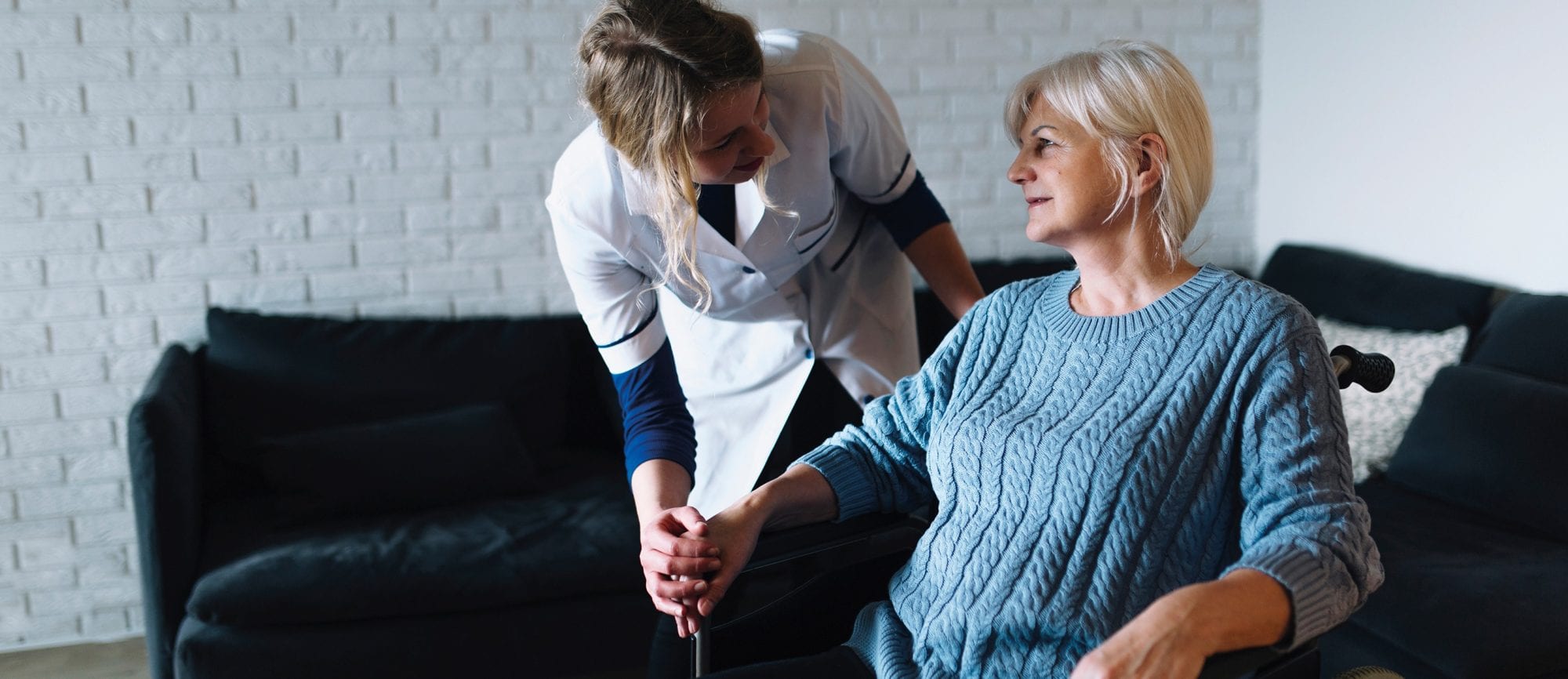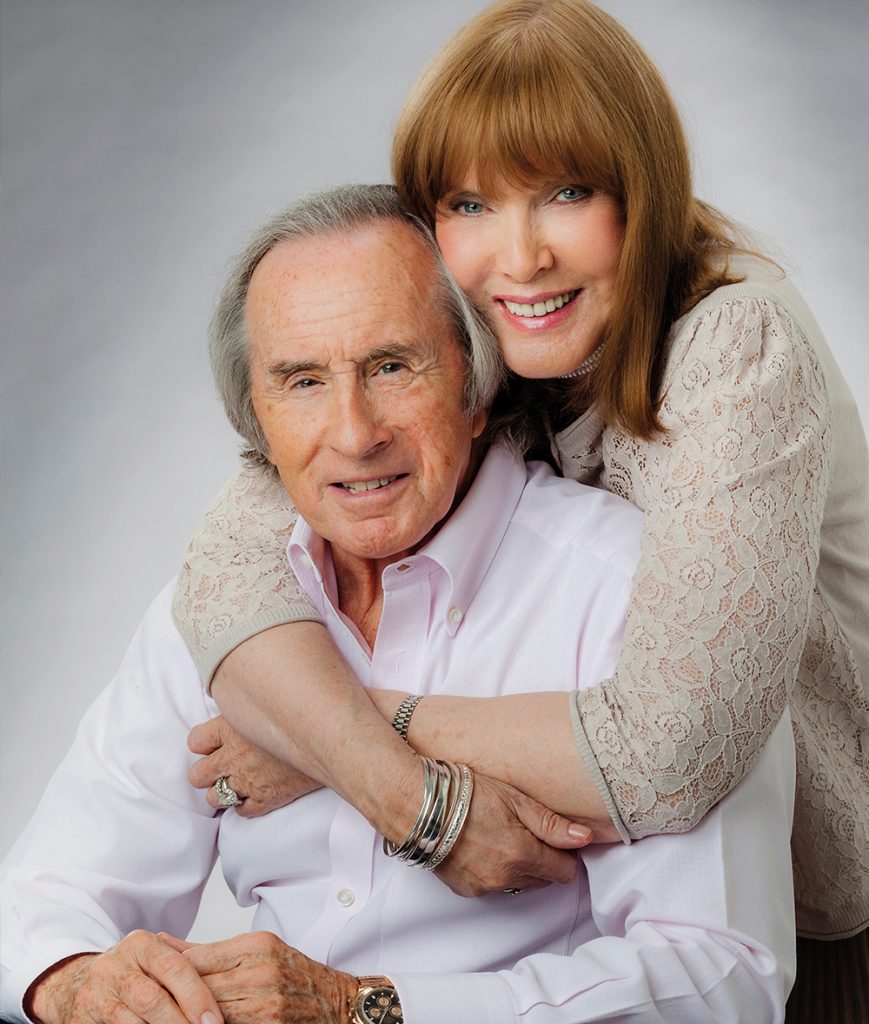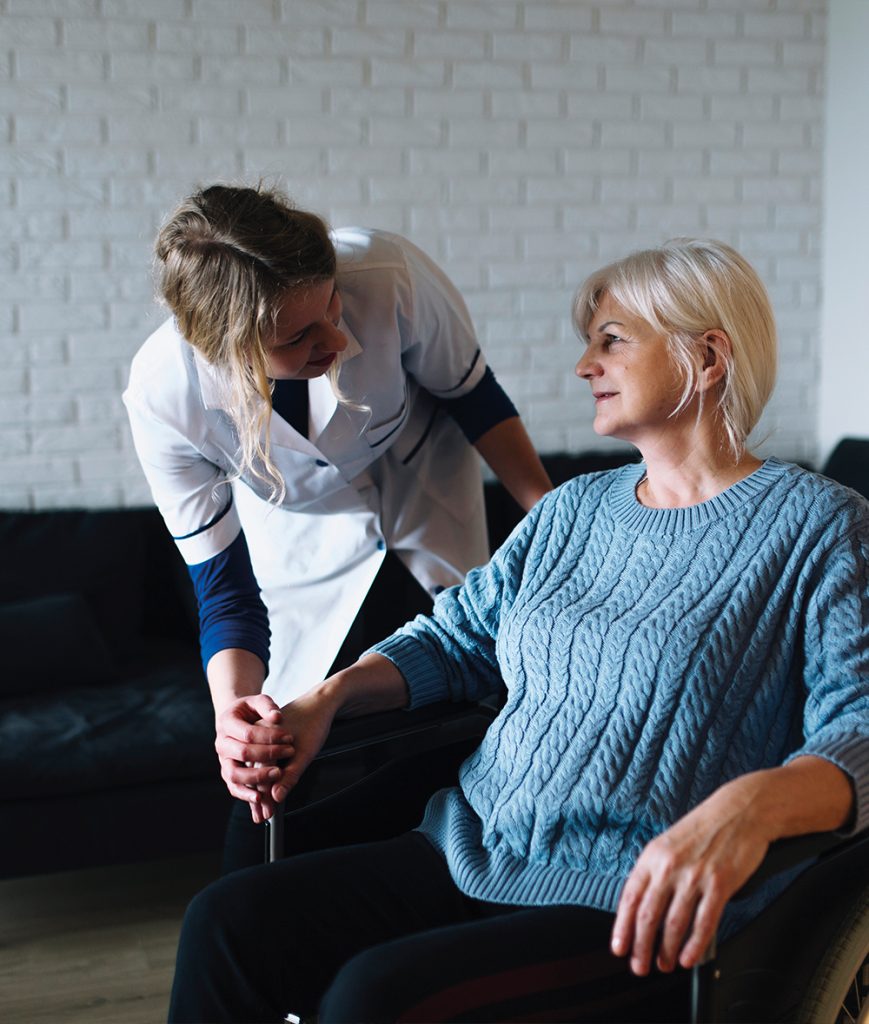We’ve put together some articles about planning for later life care as well as staying healthy & stimulated in our February guide.
CAREFUL PLANNING
Planning for your own – or family members’ – needs in terms of later-life care can be daunting. Where do you start? Here’s our advice on some of the practical elements of care.
People worldwide are living longer. Today, for the first time in history, most people can expect to live into their sixties and beyond.
Today, 125 million people are aged 80+. And, of course, there is no “typical” older person. Some 80-year-olds have physical and mental capacities similar to many 20-year-olds. You need only look at Sir David Attenborough’s contribution, well into his nineties, as a golden example of ageing with grace.
If you’re dealing with the care of a parent you’ll know how overwhelming it can feel. And planning for your own later years can be stressful, but it’s worthwhile tackling this, one step at a time, for all concerned, when you can.
Paying for social care and support can be confusing and sometimes worrying. As a general rule, if you have less than £23,250 in savings, your care will be paid for, partly or in full, by your local council. NB: this figure does not include the value of your property unless you’re moving into a care home.
In some situations where poor health is involved, social care and support is provided by the NHS instead of your local authority. In these instances it’s free (and not means-tested). If you like, of course you can arrange care privately. If you’d like your council to arrange or pay towards your care, your first step is to request a needs assessment by calling your local social services department or getting in touch online.
Care options
A recent Better At Home report by the Live-In Care Hub revealed nearly 97% of us say we’d prefer to stay in our own homes as we get older. Many children choose to care for an elderly parent in their home, but it is worth bearing in mind the financial and emotional challenges this can bring, as well as how it can affect family dynamics. In addition to residential care, the third option is home or live-in care, made possible by a professional carer who lives with the older person.
Making changes
Home alterations such as stair lifts, or installing a downstairs shower room, may be needed. If you want to adapt your home, you may be eligible for financial support from your council to make small changes. If the local council recommends that you need minor adaptations that cost less than £1,000, such as grab rails, short ramps, a dropped curb or outside lights these can also be also provided and fitted free of charge.
For larger adaptations, you can apply for a Disabled Facilities Grant. Major modifications, which can be costly, can be done free by the NHS if deemed essential. For impartial advice about the care options available in a parent’s home, call the Live-In Care Hub on 0330 311 2906. For support and advice you can also visit www.carersuk.org or call 0808 808 7777 on Mondays and Tuesdays, 10am-4pm, for support and advice.
Legal considerations
It’s important to seek legal advice if you’re worried about any aspect of an older family member’s care, or your own, such as power of attorney. Citizens Advice offers free advice on a wide range of issues, including benefits, housing or employment. The helpful charity team can provide advice over the phone or in person at one of their offices. Visit www.citizensadvice.org.uk to find your local branch.
Law centres offer free legal advice across the country, covering topics such as benefits, employment, housing, immigration and asylum, discrimination and debt. Visit www.lawcentres.org.uk
Age UK doesn’t offer legal advice but the advice team can suggest reliable sources of information and advice to help you with your situation. Age UK runs a free national advice line that is open 8am to 7pm 365 days a year. To speak to someone, call 0800 678 1602.
BACK FOR GOOD
Local rehabilitation and fitness expert Tim Laskey explains more about how you can help protect & restore your spine
The importance of looking after your back cannot be overemphasised. Millions suffer from (predominantly low) back pain. Statistics vary, but suggest every year about 20% of us consult our GP about this.
Back pain can range from uncomfortable to excruciating and falls anywhere between inconvenient and totally debilitating. This is a serious problem, exacerbated by sedentary occupations, our obsession with social media, reduced physical activity and burgeoning obesity. The latter in particular places enormous compressive strains on the low back.
The human body has evolved over millions of years. We don’t so much use it, we neglect it, we abuse it, And in the Western World we’re paying a heavy price. Proper functioning of the spine is crucial to our wellbeing. The spine, of course, contains and protects the spinal cord.
The four movements involving the spine are
• Flexion – bending forward
• Extension – bending backwards
• Lateral flexion – bending sideways and
• Rotation – twisting.
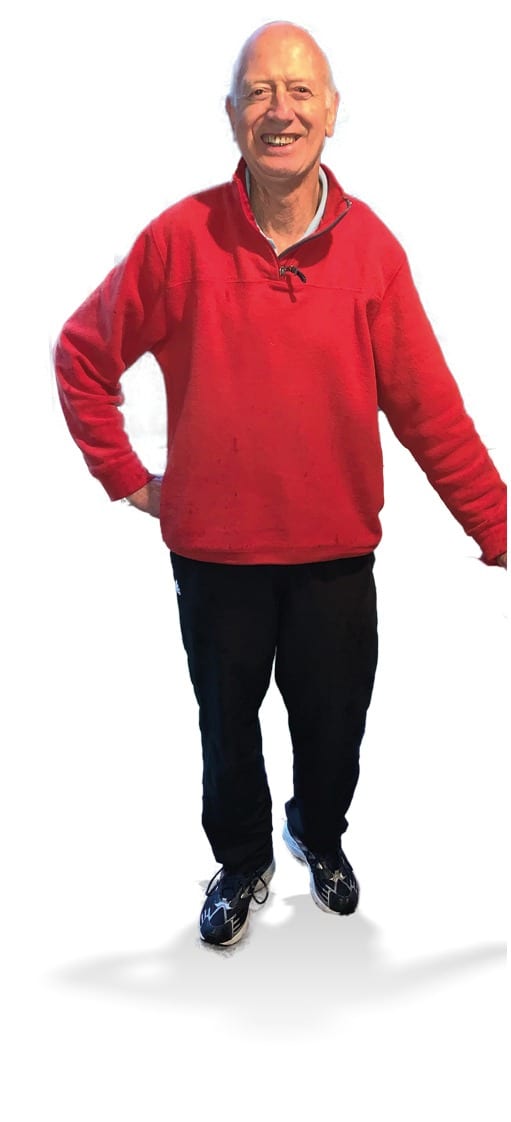

All of these movements involve the low back which is, effectively, the hinge between the torso and the lower body. But – and this is so important – just about every movement we make involves the spine and the low back.
Wear and tear and aging take their toll.
Indisputably, though, the biggest problem is very low strength in the muscles, tendons and ligaments that make up the spine’s support structure. Add poor mobility and the deterioration of those crucial intravertebral cartilaginous discs and it’s a “perfect storm”.
If you suffer with back pain, what do you do? For many it’s off to the GP. That is likely to result in prescription painkillers and, perhaps a referral to the physio. ALL drugs have side effects. Some can be extremely addictive. They don’t solve the problem neither do lumbar belts, braces or other supports.
A good chiropractor, osteopath or physiotherapist with manipulative skills, can offer wonderful relief from pain. But it’s just that; relief and may be temporary. If you do nothing you’ll keep going back. Surgery is the last resort and always carries some risk. It’s often inconclusive and, as I’ve proved, often unnecessary.
To solve the problem you must find a rehabilitation specialist with the experience, the expertise and the equipment required. Such a specialist will interview you, study your spinal alignment and body posture and devise a programme tailored exactly to your needs which will contain strength-building and the development of mobility, flexibility, stability. The specialist needs to talk to you about the most significant muscle groups; erector spinae, rectus abdominis, quadratus lumborum and iliacus. Hyperextension and compression of the lumbar spine must always be avoided
It is generally simple to transform a person’s back strength, mobility and stability and, in doing so, transform their life. It may be simple, but it’s not always easy as it does require application, determination and perseverance! Visit www.getintothehealthhabit.com
LIVING LIFE TO THE FULL
We ask Helen Davies-Parsons, CEO of Dormy Care, which owns Bramshott Grange care home in Liphook, about how care has changed & how we can choose a happier life for our older loved ones.
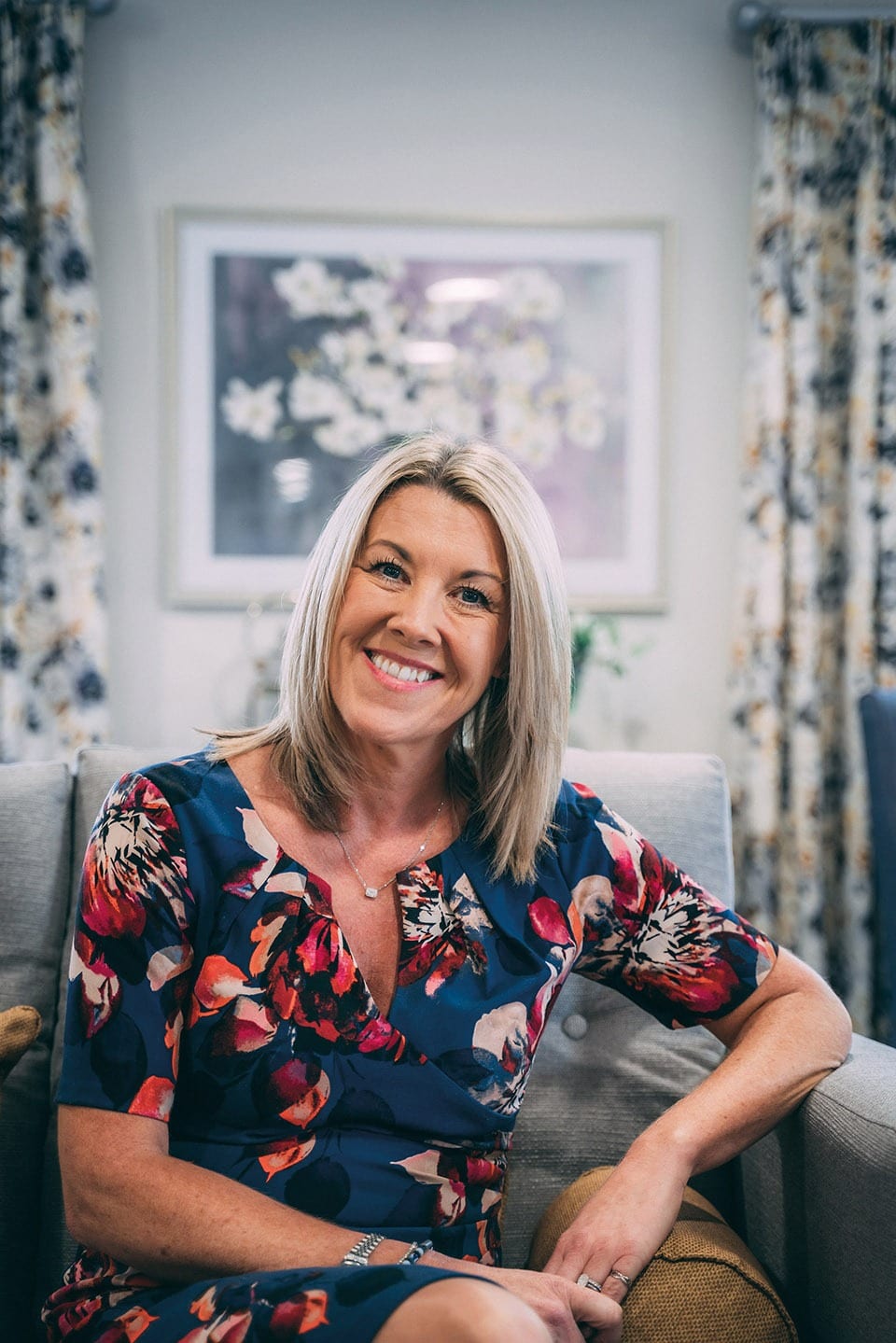
Q. What do you feel are the myths surrounding care & what would you say to anyone who’s going through the stressful process of deciding care? “Sadly, there is a low level of understanding by the general public on the positive aspects of care homes. There’s been a lot of negative press about abuse in care homes, which is, of course, appalling. However, this is in the minority and most good quality homes offer support, care, companionship and a quality life for the ladies and gentlemen who live in them. My advice for anyone going through the process of deciding on a care home for a loved one is to visit unannounced.”
Q. How do you feel attitudes & ethos have changed for the better when it comes to the care of older people? “Society now has a much more positive view of older people and the contribution they have made, and continue to make, to society. This is largely due to the fact that older people are seen more in the media and their voices are louder than ever before.”
Q. Why is taking a more holistic approach to care better? “Everyone is an individual and one size does not fit all. Treating everyone as a person in their own right enables them to continue to live their life to the full and continue to enjoy what they want to do with the support of care teams around them.”
Q. What should people be aware of when visiting a residential home & what questions should they ask? “The most important thing to do when visiting a care home is to look, listen, smell and get a feel for the place. Is the home clean? Are the staff friendly? Do the people living there look happy and well cared for? Are there activities going on? Does the food look appetising? Would you be happy to move in yourself if needed?”
A BRAIN-BOOSTING DIET
Haslemere’s Hunter Centre is running a series of talks given by local nutritional adviser Claudia Vargas.
Claudia knows that, while we can’t prevent ageing or change our genes, there are some steps we can take to reduce our risk of developing dementia.
The healthiest foods worth including in your diet are greens such as kale, spinach, broccoli, blueberries, avocadoes, coconut oil, olive oil, walnuts, cashew nuts, almonds.
Rich prebiotics are garlic, onions, leeks, chociry, Jerusalem artichoke and top five herbs and spices for health are rosemary, turmeric (mixed with a bit of pepper and coconut or olive oil), cinnamon, ginger and sage. As for drinks, opt for filtered water, green tea, golden tea, ginger turmeric, black pepper, coconut oil tea or rosemary and mint tea.
For further information on diet, recipes and useful care tips please email [email protected]
HEART WARMING
After talking to care-givers on their team, Kevin Lancaster, managing director of Right At Home, shares five tips to help older people in our community stay safe and warm.
Winter is here, and with it the increased likelihood of a cold snap and freezing temperatures. We can all play our part to be good neighbours and help keep loved ones safe, warm and comfortable.
Getting older can leave us more vulnerable in the colder months as our bodies respond differently to temperature changes. When we start to feel cold, this usually triggers us to do something to warm up; adding more layers or turning up the heating. But if our body temperature drops below 37ºC, dangerous problems can arise, such as increased heart rate and blood pressure, liver damage and even heart attacks. Hypothermia can set in if our core temperature drops below 35ºC. Left untreated, hypothermia shuts down the body’s heart and respiratory systems – a real risk in the winter, especially among older people.
Registered care manager Bailey Harrison says “We do see some people making decisions during the winter months which can have an adverse impact on their health & wellbeing. This includes turning the heating down, or off, to save money; not wearing the right clothing for the weather; or being unaware of the temperature drop outside.
“For people living with dementia, there can be extra challenges in the winter, such as forgetting how to operate the heating or fire, placing something too close to a fire so it becomes a risk, or leaving the house not properly wrapped up.” We thought we’d share some of our top tips…
1. If you have vulnerable members in your family or friendship circle, create a rota of people who can regularly call in to check your loved one is warm and safe. Check they have appropriate clothing. Check the cupboards are stocked with the right kind of food. Check room temperatures and make sure there are extra blankets to hand. Be ready to organise your loved one’s medication, so they don’t run out.
2. Diet and hydration is always important, but especially in winter. Encourage your loved ones to eat warming food such as stews and chunky soups and to keep hydrated with warm drinks. If they may be alone for long periods, why not invest in a flask to keep drinks warm for longer? Also, an offer to pop to the shops to refresh their groceries so they have plenty to eat and drink would be lovely.
3. Pop in to neighbours and loved ones for a quick “hello”. As well as alleviating loneliness, it allows you to check temperatures and to ensure there’s no fire hazard. It’s also worth investing in a carbon monoxide alarm, especially if you notice the heater is old.
4. When out and about, observe the people around you. Are the elderly people you pass dressed appropriately for the weather? A friendly conversation can give you an idea if the person has forgotten to put a coat on, or if there is an underlying issue. We’re not saying you have to buy everyone a pair of gloves, but you may encounter a situation needing a little extra care, or a trip to the charity shop. It’s vital to keep the body’s extremities – such as hands, feet and head – warm.
5.If paths are icy or snow-covered offering a little support can bring confidence to someone who is struggling. If someone falls, keep them warm as you call for help. Don’t try to help them up, in case they’ve broken a bone. Be sure to get it checked by a medical expert.
By working together, we can help to keep our community safe this winter. And, if like the lovely care-givers at Right at Home, you find helping others a natural heart-warming act, why not consider a career working in care professionally? Call 0118 207 0600 or visit www.rightathomeuk.com/reading to find out more.
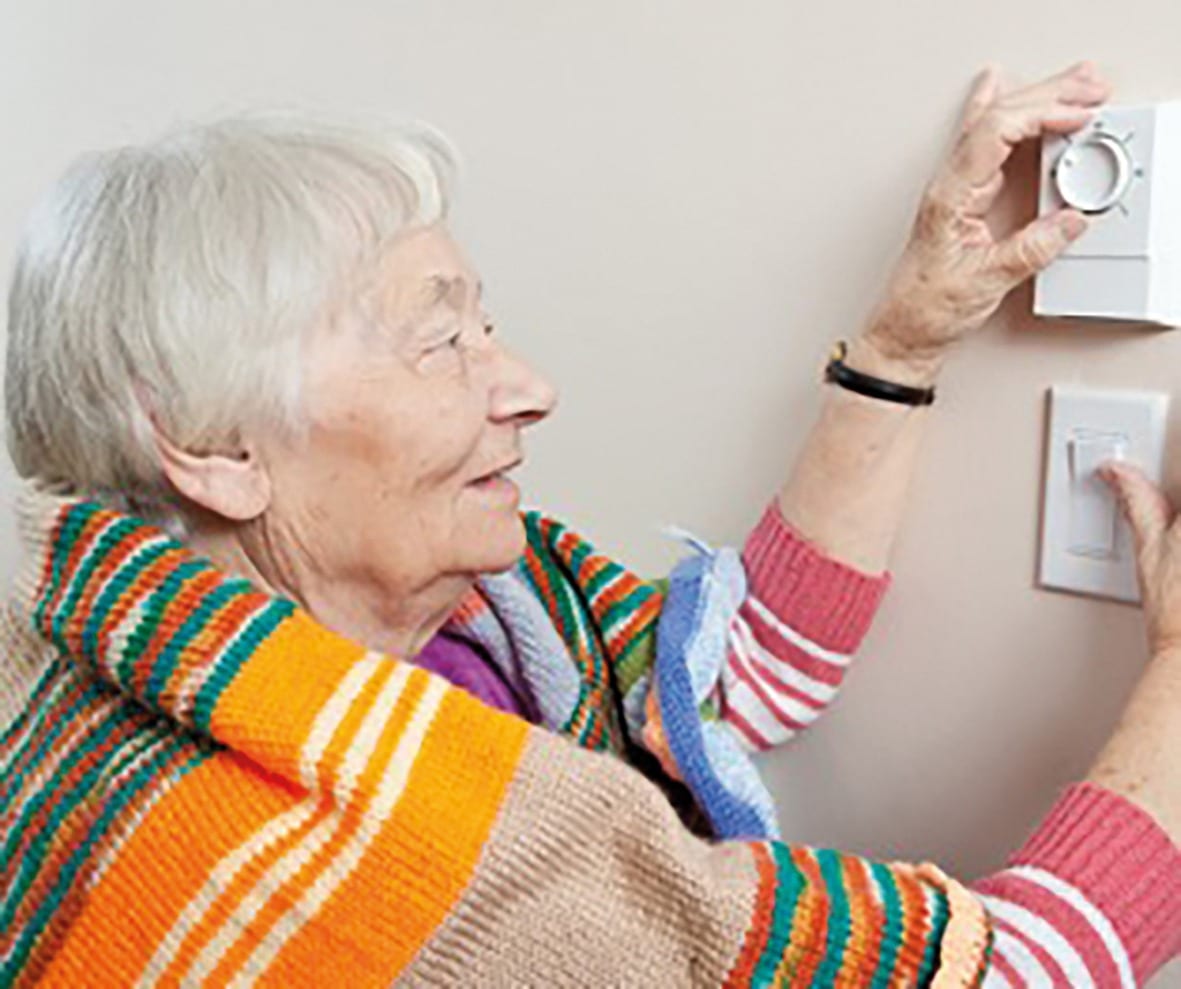
HISTORY OF NURSING
Claire Laurent is a local writer and nurse whose family are rich in nurses, medics and midwives. Her new book explores the rituals and myths in nursing through the 20th century.
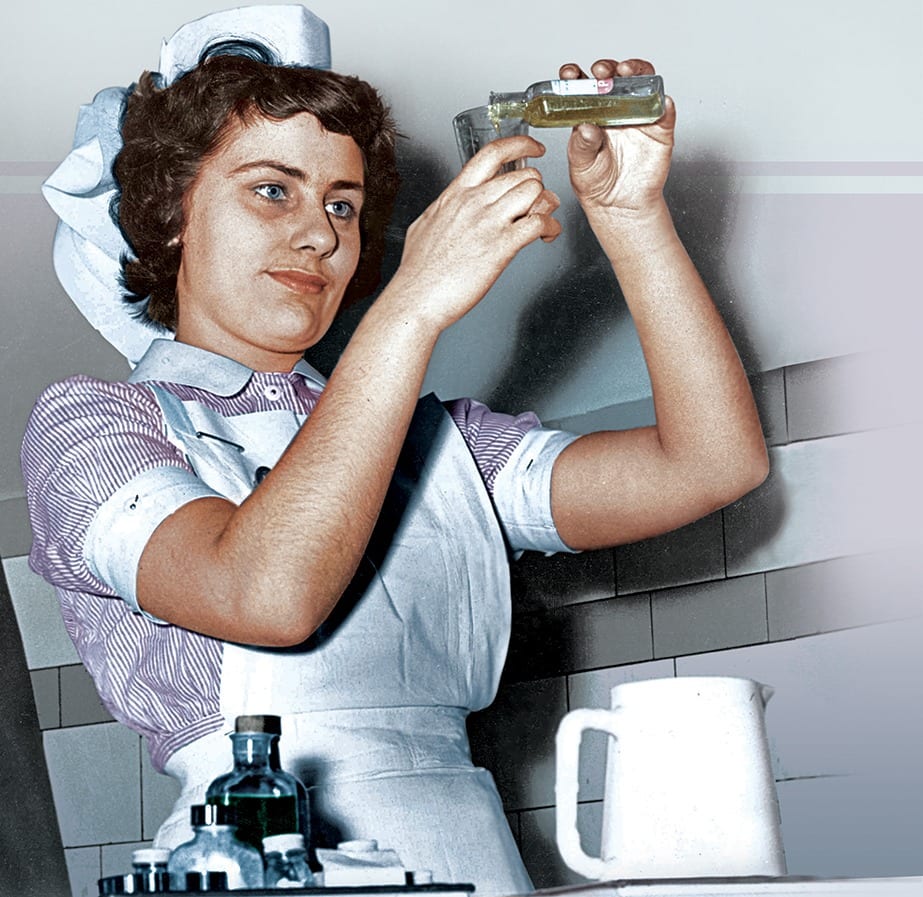
Nurses, as Claire Laurent observes, have largely been depicted in public consciousness as female and caricatured as angelic, sexy or fierce. From the tabloids’ “angels” to the Carry On films’ formidable Hattie Jacques matron and buxom Barbara Windsor, to Nurse Ratched in One Flew Over the Cuckoo’s Nest, nurses have rarely been regarded as just people doing a job. “This, despite Florence Nightingale leading the charge, more than 100 years ago, to establish nurses as a “workforce of demure, clean and educated girls.”
Claire says: “I trained as a nurse at the oldest hospital possibly in the world; St Bartholomew’s Hospital, London, in the traditional ‘apprentice style’ of the 20th century. I moved from there to a job as a journalist on the nursing press so I spent many years writing about nursing and following the developments of the profession.
“There’s a bond you develop as a nurse, both with the work and your colleagues, sharing memories and experiences. I wanted to write something that told the stories of nursing that reflected its nature without being a memoir, of which there are many.”
● Rituals & Myths in Nursing: A Social History by Claire Laurent is out now in paperback, £12.99, published by Pen &Sword. ISBN: 978147389661
HOME FROM HOME
A carer and a companion all in one – Chawley Grove introduce their innovative, award-winning “home-maker” model of care to Oxfordshire
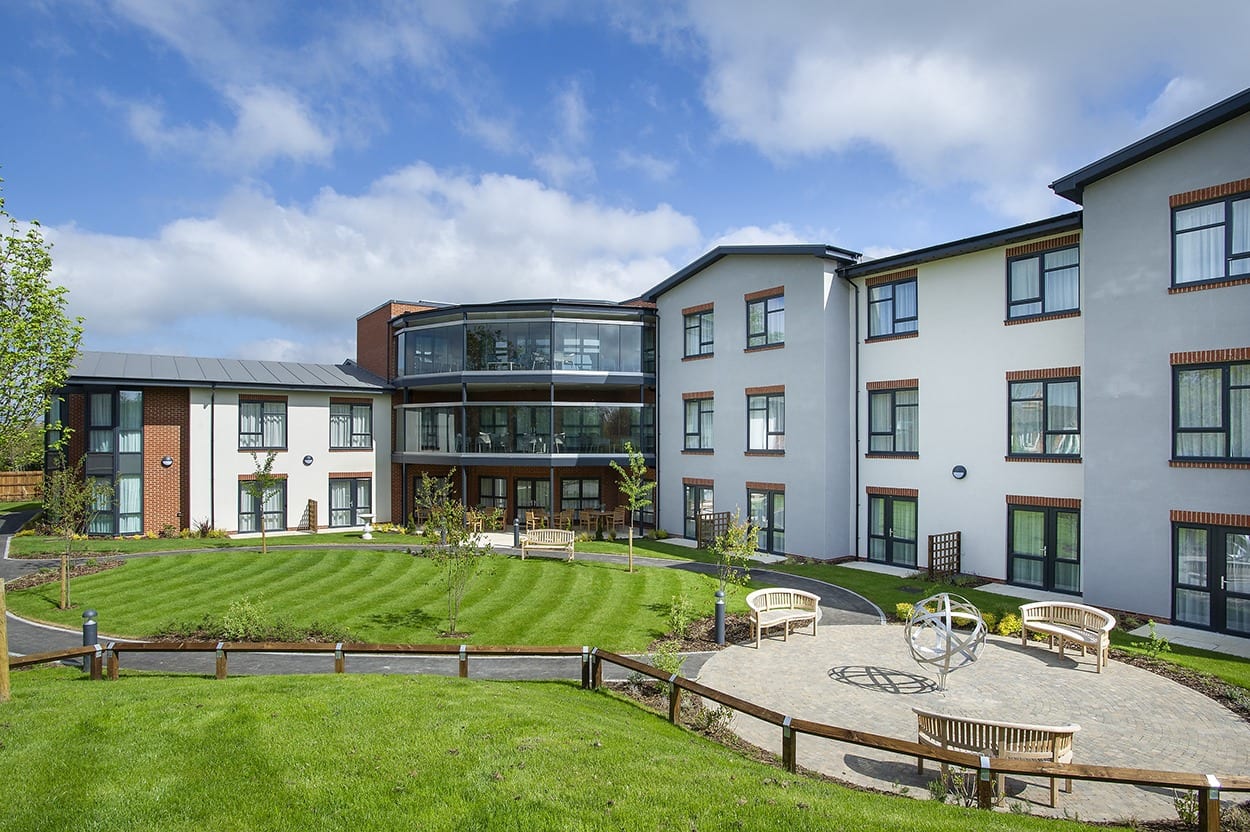
A quiet revolution in care is taking place in Cumnor Hill. Chawley Grove
is one of the UK’s first care homes to do away with traditional care workers and instead employ “homemakers”…
Homemakers are universal workers, providing gap-free care. Homemakers are carers, housekeepers and companions all in one, holistically supporting residents just as they would in the resident’s own home.
Chawley Grove is part of the Hamberley Care Homes Group, which recently won a prestigious Health Investor award for its groundbreaking new care model. The organisation has removed the hierarchical structure you’d normally find in a care home, and instead developed a leadership hub and a more dynamic model of working.
Chawley Grove also has a wellbeing & lifestyle coach who ensures the team create a nurturing and stimulating environment for residents and staff alike. The coach considers all elements to enable supportive, homely environments that empower residents to live meaningful lives.
The Hamberley team believe the unique model, including an expert clinical team, is the most effective way to deliver outstanding care, helping them win Residential Care Provider of the Year. The judging panel congratulated them for focusing on the resident’s experience of care above anything else. One said: “The resident is clearly at the centre of everything. Brilliantly innovative to create the role of homemaker.”
And it seems the residents and their loved ones agree – the luxury care home enjoys a rating of 9.9 on independent review site www.carehome.co.uk. The son of one resident said: “The staff are always welcoming and courteous. The ‘homemakers’ do exactly what it says on the tin.”
The daughter of another resident said: “When I first visited I was struck by the beautiful setting, furnishings and facilities. However, it’s the professionalism and warmth of the homemakers and staff that has made my mother’s stay so happy. The attitude of staff is exemplary.”
Hamberley Care Homes CEO Paul Hill said: “Innovation is embedded at the heart of our company and each day we strive to make improvements that benefit our residents and their families.”




